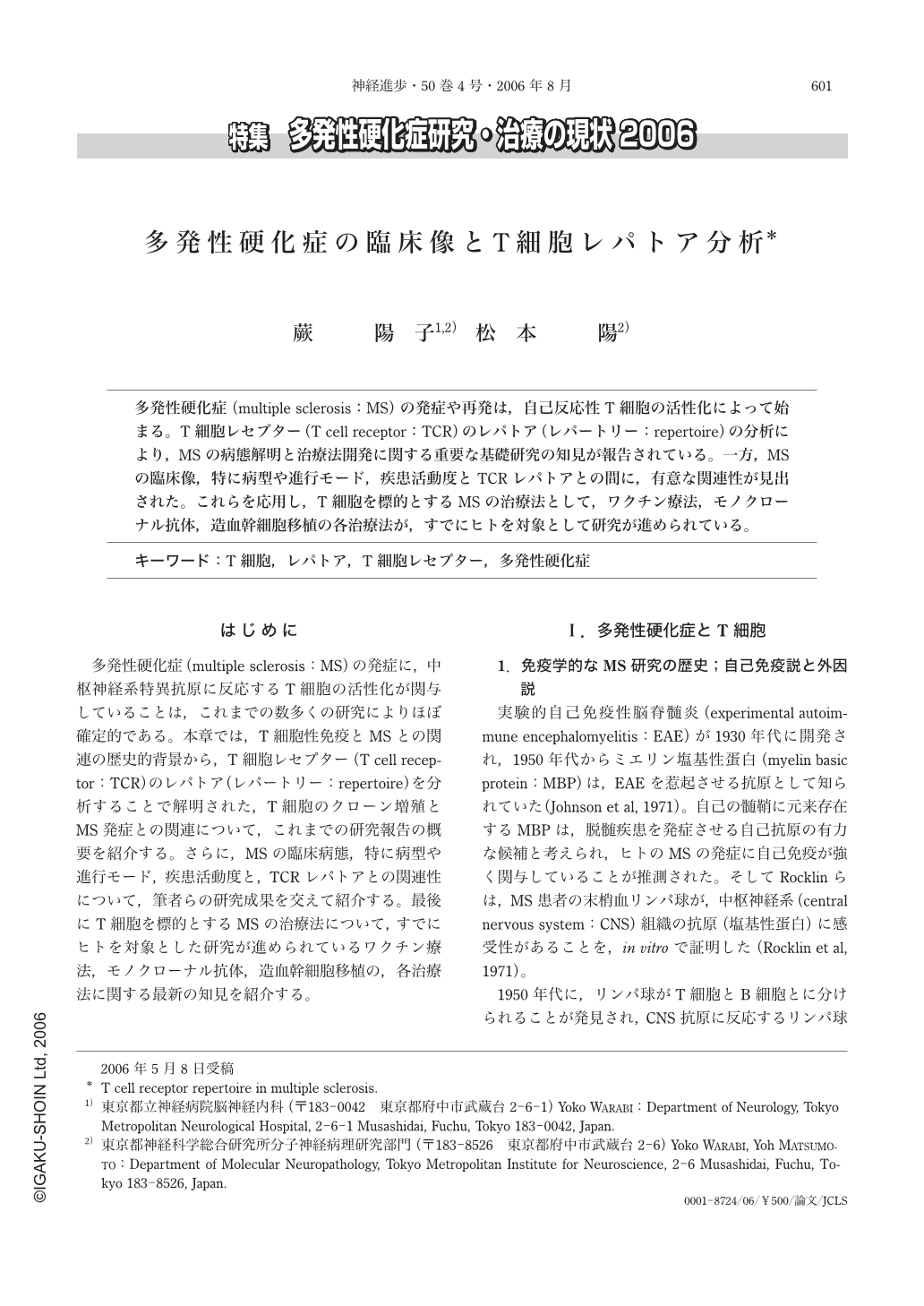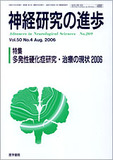Japanese
English
- 有料閲覧
- Abstract 文献概要
- 1ページ目 Look Inside
- 参考文献 Reference
多発性硬化症(multiple sclerosis:MS)の発症や再発は,自己反応性T細胞の活性化によって始まる。T細胞レセプター(T cell receptor:TCR)のレパトア(レパートリー:repertoire)の分析により,MSの病態解明と治療法開発に関する重要な基礎研究の知見が報告されている。一方,MSの臨床像,特に病型や進行モード,疾患活動度とTCRレパトアとの間に,有意な関連性が見出された。これらを応用し,T細胞を標的とするMSの治療法として,ワクチン療法,モノクローナル抗体,造血幹細胞移植の各治療法が,すでにヒトを対象として研究が進められている。
Activation of autoreactive CD4-positive T cells in the peripheral blood is the initial step in the development and relapse of multiple sclerosis(MS). Analysis of T cell receptor(TCR)repertoire is a useful method to characterize the functional pathogenesis of autoreactive T cells in MS and the animal models for MS. Recently, it has been reported that the clinical characteristics of MS and the results of TCR repertoire analysis have significant correlations each other. For example, TCR repertoire in neuromyelitis optica is different to that in MS. Secondary progressive MS has smaller number of clonally expanded TCR Vβ genes than relapsing-remitting MS. EDSS and MRI activities in MS patients are correlated to the activities in TCR repertoire of peripheral blood lymphocyte. These results are finding wide application in treatment of MS. Treatment using vaccination and monoclonal antibody or hematopoietic stem cell transplantation are developed to MS patients and the effect on the TCR repertoire is widely investigated. TCR repertoire analysis is useful not only in basic research but also in clinical characterization and treatment for MS.

Copyright © 2006, Igaku-Shoin Ltd. All rights reserved.


